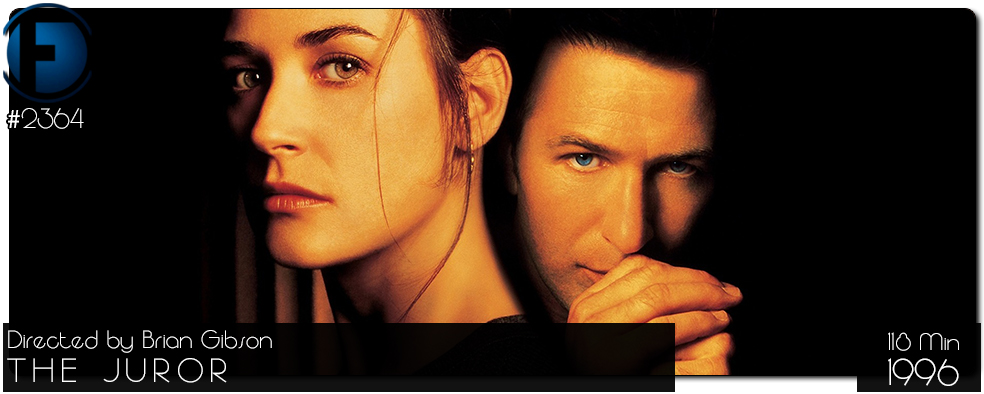Movie Review – Juror, The
Principal Cast : Demi Moore, Alec Baldwin, James Gandolfini, Joseph Gordon-Levitt, Lindsay Crouse, Anne Heche, Tony Lo Bianco, Michael Rispoli, Matthew Cowles, Matt Craven, Frank Adonis, Michael Constantine, Polly Adams.
Synopsis: A juror in a Mafia trial is forced to convince the other jurors to vote not guilty by an obsessive mob enforcer.
********
What starts as a reasonably compelling “jury tampering in a mob trial” drama sputters into idiocy with surprisingly dull – and incredibly convoluted – twists, with Demi Moore and Alec Baldwin having the screen chemistry of sour milk in this potboiler that runs quickly out of steam. The Juror has long been in my blindspot for the legal-thriller subgenre, although given the prominence with which Alec Baldwin finds himself in the headlines these days, perhaps it’s unsurprising it keeps being recommended in my Netflix algorithm. It goes without saying that the film also contains appearances by several gone-too-soon stars in James Gandolfini and Anne Heche, with the latter providing a respectable, if tragic, outcome for a supporting role, while Jimmy G does standover gangster like nobody else at the time. Unfortunately, however, The Juror is a misfire, turning a possibly excellent premise into a plot that winds its way inexplicably to the Guatemala lowlands for some reason, a mishmash of competing ideas and subplots rendering the “thrills” of the story inert.
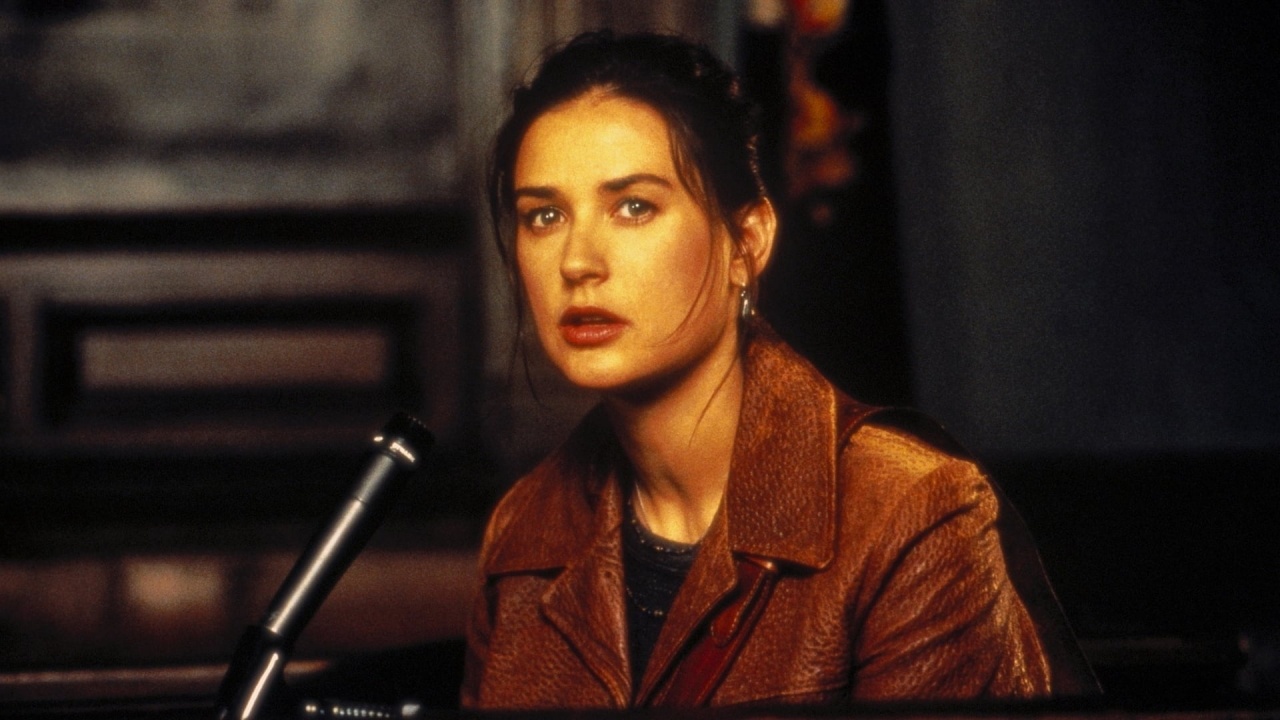
Demi Moore plays Annie Laird, a single mother and struggling sculptor, who is selected as a juror in the trial of a powerful mob boss (Tony Lo Bianco). Unknown to her, the mob has sent a hitman known as “The Teacher” (Alec Baldwin) to ensure the jury returns a “not guilty” verdict. The Teacher menacingly infiltrates Annie’s life, threatening her and her son (Joseph Gordon-Levitt) to manipulate the trial’s outcome. As the pressure mounts, Annie must find a way to protect her son and herself while navigating the terrifying world of organised crime.
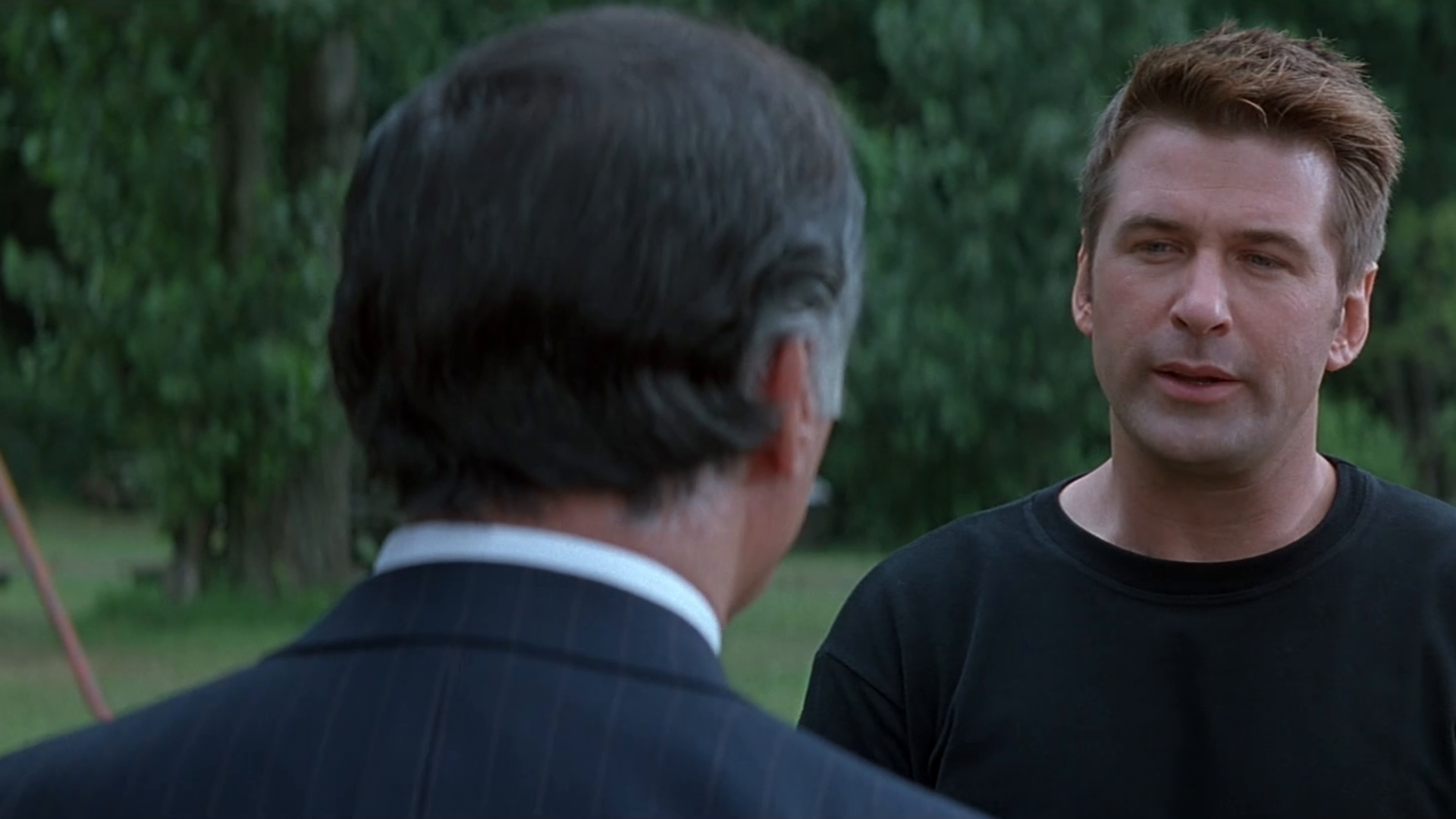
In the mid-90’s, Demi Moore was a bonafide box office draw, a rare solo female who could headline a movie and put bums in seats. Her star turn in the romantic-thriller Ghost propelled her into the A-list, following that up with some big swings with A Few Good Men (with Tom Cruise and Jack Nicholson), Indecent Proposal (with Wooody Harrelson and Robert Redford, and the sex-crime potboiler co-starring Basic Instinct’s Michael Douglas, Disclosure. Her career hit a speed bump of two after the critical flogging of 1995’s unfortunate bomb The Scarlett Letter, and would continue with both this film and Striptease in 1996. A brief dalliance with possible awards glory came with the Ridley Scott army flick GI Jane, but Moore’s time in the spotlight had all but flamed out by the time she was relegated to screen villain in the McG sequel Charlies Angels: Full Throttle. Moore is a solid screen presence when given adequate material that suits her trying-really-hard acting style, and of all the films I’ve ever seen with her in them, The Juror is arguably her most nuanced turn. It’s essentially a Scorsese mobster flick through the lens of Dan Brown exposition via 12 Angry Men by way of William Friedkin’s realistic grittiness – at least that’s what I hope director Brian Gibson (What’s Love Got To Do With It) was hoping to mimic, What might surprise you to learn is that The Juror was written by Oscar-winning screenwriter Ted Tally (The Silence Of The Lambs), adapted from the 1995 novel of the same name; the pedigree of the film’s genesis, production and cast can’t be faulted, really, so why is the whole thing just so dreadful?
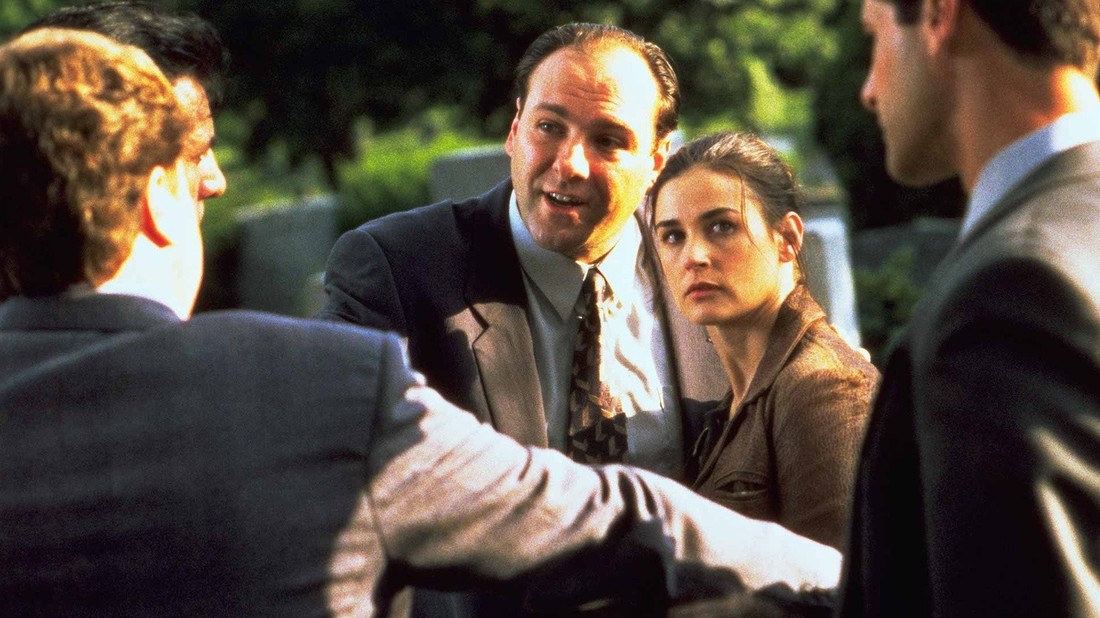
The problem with The Juror isn’t the cast, per se, nor is it the initial premise of a juror being blackmailed to deliver a verdict against a mob boss on trial, which remains an easy-to-watch archetype no matter how invidious the rest of the story. Heck, it isn’t even really the direction, inasmuch as Gibson’s work in pacing the film, capturing angles, adding salacious sex and blood to the pulpy tonality of it all, is actually pretty solid – it’s certainly not bad, in any case. I think where the film fails is in its often preposterous plot devices, its ruinous character decisions (which, I guess, could be the fault of the writing, in hindsight) and a really weird sense of unfulfilling romantic angle between the two leads. For some reason, Alec Baldwin’s psychopathic hired killer character states that he’s fallen in love with Demi Moore’s populist artist character, although at no point in the film has this ever been intimated as a potential plot point. For me, this attempt to try and force some weird Stockholm Syndrome gag on the viewer fails, and turns what might have been an otherwise blunt-force trauma legal thriller into a weirdly anaemic turn-the-tables-on-the-stalker plot twist, with a significant number of convenient heroine plot armour moments making me groan in astonishment – and not in a good way. There’s a weird segue in which Moore’s Annie has to convince a jury of her peers to acquit a confirmed mob boss, at the behest of the Baldwin’s killer character, and it’s at this stage of the film I began to lose faith in what I was watching. A jury of 11 other normal, regular Joe people would change their minds over Annie’s weak-as-piss arguments? With little fight? As one of the jury says during the start of their deliberations, it’s an open and shut case… until it isn’t. The tension of the film evaporated for me after that.
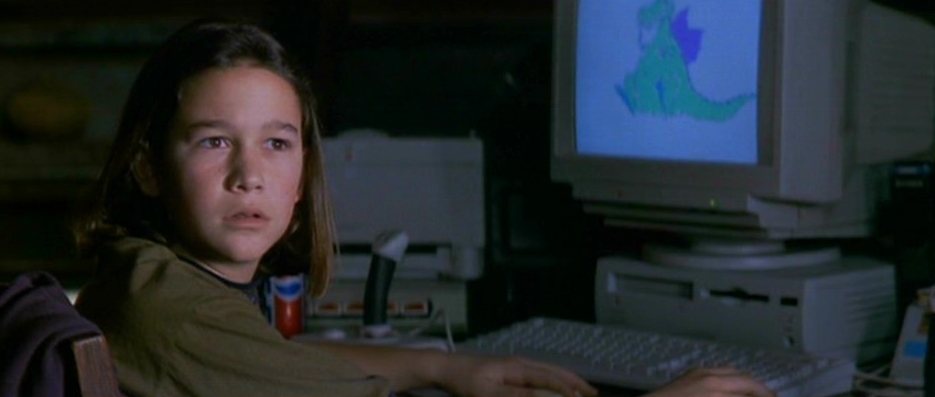
And just when you think the film looks to have wrapped itself up, there’s still another forty minutes or so to go, as all the characters – and I do mean all – make some of the dumbest, most obtuse decisions in the history of B-movie filmmaking to bring about one of the weirdest, most convoluted conclusions to this kind of movie I’ve seen in a while. Moore’s character flits between New York and some far-flung village in Guatemala, where Matt Craven plays a doctor (I guess) whose relationship to her isn’t ever really explained, but I guess they had to film there to lower the budget and for tax purposes? Why Guatemala? I guess Tally was thinking of places nobody would be able to chase you and one of the darts he threw at a map landed in Central America. Annie and Baldwin’s Teacher have plenty of phone chatter, casual meet-ups and muttered tense conversations by the edge of a lake, but they can’t escape the befuddling sense that the whole thing just becomes way too silly for its own good. I get that the film is attempting to follow the novel’s plot as honestly as it can, but nobody here can overcome a real sense of “convoluted for the sake of confusing the audience” mechanics at work that… well, don’t work.
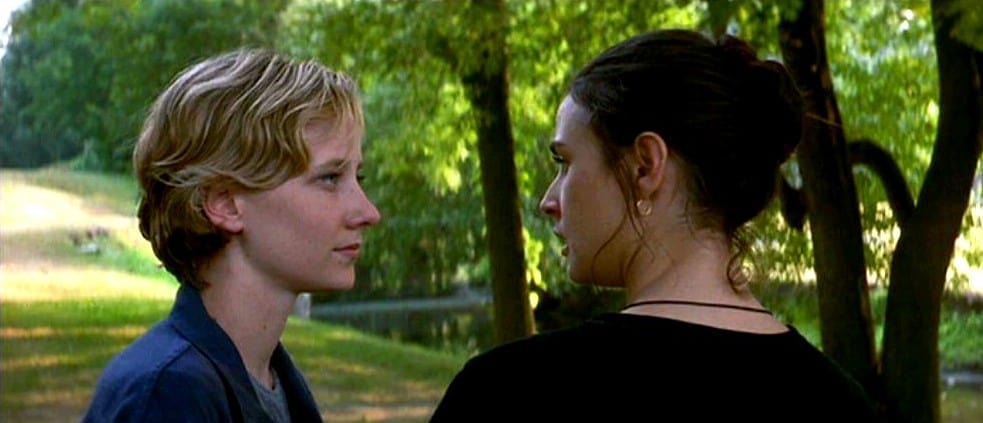
As mentioned, Moore is particularly good despite having to convey paranoia and fear with a character incapable of determining those emotions, Baldwin is his blue-eyed handsomest-best as the psycho hitman (honestly he chews the scenery like nobody else), while supporting roles to Anne Heche, a prickly young Joseph Gordon-Levitt, James Gandolfini, Matthew Cowles and a very much missed Michael Constantine (as the trial judge) bring the vigorous star-power an ensemble piece like this demands. Seeing Anne Heche in her absolute prime was an ache tinged with sadness, knowing she’s no longer here, while Gandolfini’s turn as a mafia standover man is fun if somewhat undemanding of his talents. Lindsay Crouse plays one of the worst US Attorney’s imaginable, and how she thinks siding up to Annie will work with her attitude turned to bitchy I’ll never quite understand.
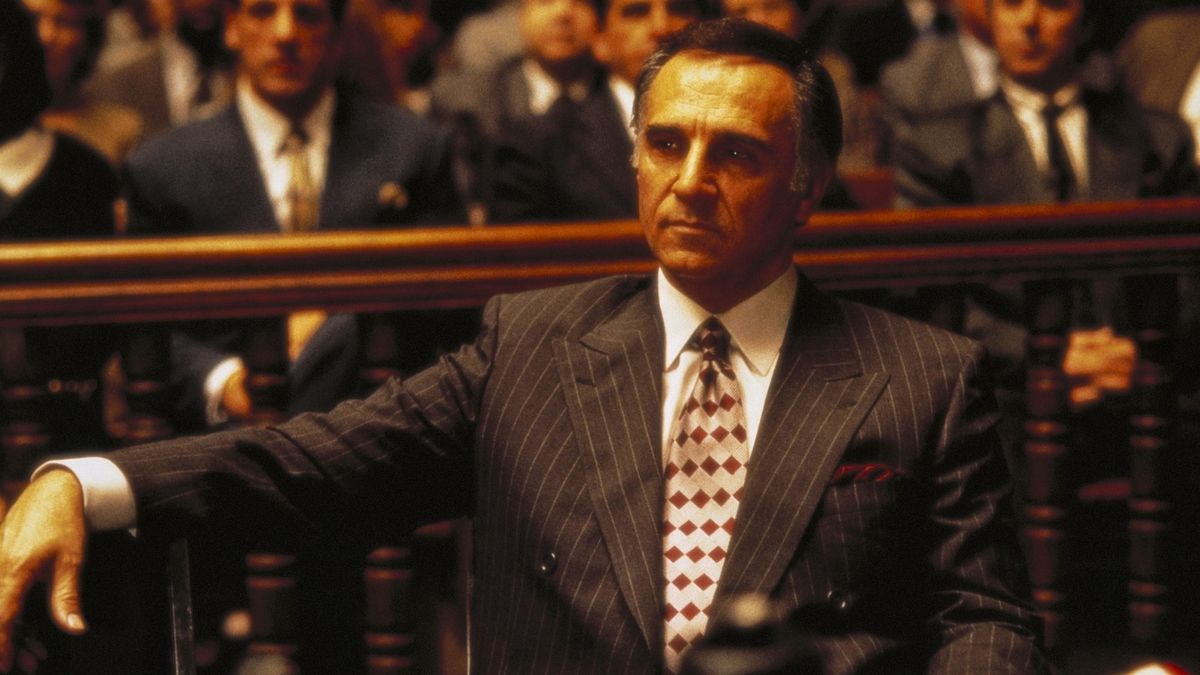
Ultimately ruined by a too-complicated and too-convoluted plot for audiences to go with, and with some bait-and-switch plotting during the third act that had me rolling my eyes, The Juror starts off promisingly but soon sinks under its own bloated self-importance. It’s a film with the tone of an Oscar-bait drama underpinned by the plot of an airport lounge potboiler, the kind of hazy drug-addled daydream material Grisham or Baldacci might toss off in an afternoon. Given the pedigree contained in the film this is something of a disappointment – well, it’s a major disappointment if I’m being honest – and aside from getting to watch Alec Baldwin suavely annihilate his co-stars by acting rings around them there’s little else to recommend this. For completists of the Moore/Baldwin catalogue only.

